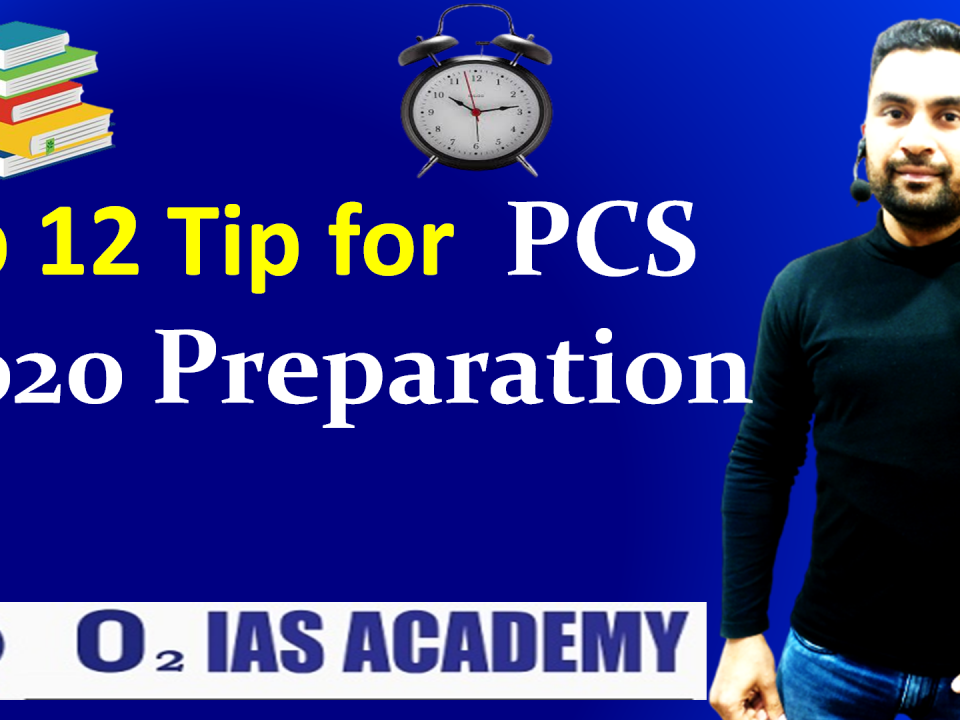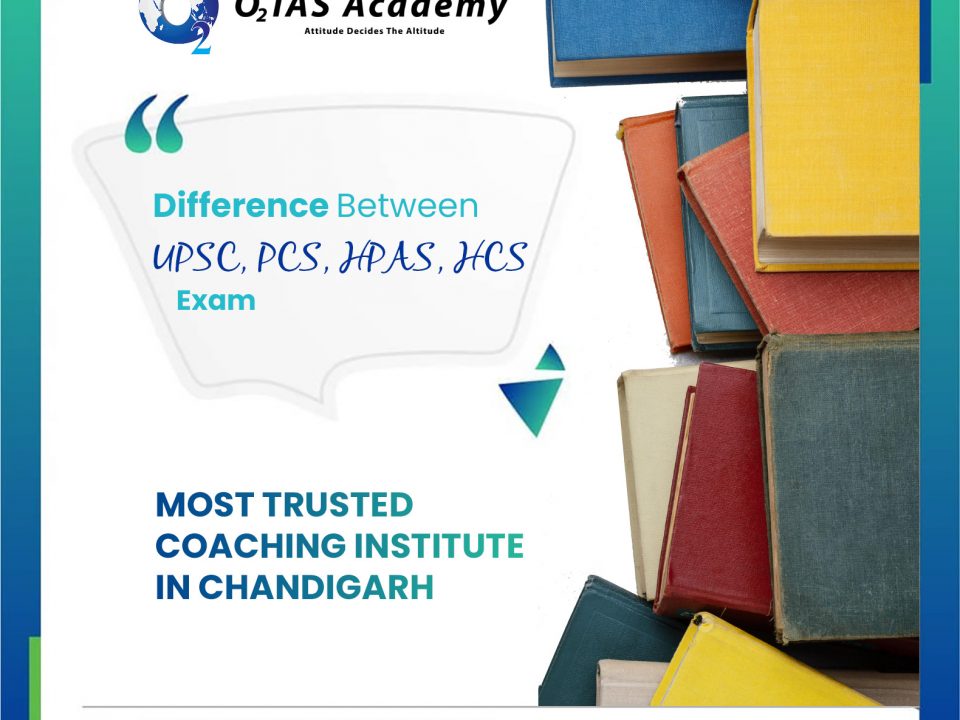10 Common Issues Faced by IAS Aspirants
UPSC has announced that Preliminary exam will be held on 2nd June 2019. Just like every other year this year also lakhs of young ambitious hard working Indians have started preparing for the prestigious UPSC examination. For more than a decade, O2 IAS academy has been guiding and helping students to realise their goal of becoming a civil servant. Through the experience and insight gained by witnessing the numerous changes in UPSC pattern and various ways by which aspirants cope up with them, in this blog, we have tried to summarise some common issues faced UPSC aspirants and our suggestions on how to overcome them.
1.Average vs intelligent student debate: The root of under confidence
It is a commonly held view that UPSC civil services exam is one of the world’s toughest exams to crack. Thus, even before the actual preparation for the exam begins many aspirants start doubting themselves. Many aspirants have this misconception that one has to be a born genius, a university topper or from IIT/IIM to clear and secure top ranks in this exam. This is one of the biggest issues faced by candidates: lack of faith and confidence in their capabilities.
The truth is just like any other competitive exam, UPSC civil services exam can be cleared with a good strategy and consistent preparation. The students who clear the exam every year are from mixed academic backgrounds: some of them are from reputed universities, some from regional colleges; some have been toppers all their life while many others have been average students, some are doctors, engineers, while others are from commerce or humanities back ground. The only thing they have in common is hard work, perseverance and that they made it to the final list. Thus, you should have faith in yourself since this exam is just like any other competitive exam: can be easily cleared with a sound strategy and consistent time table which is religiously followed.
2.Coaching: to do or not to do?
The next issue faced by aspirants is the choice between studying at a coaching institute or self preparation. Many aspirants waste many precious weeks on deciding whether they will be joining an institute or not and later on the choice of the institute. Our advice to candidates is that they should attend a few demo classes at 2-3 institutes of their choice to see if they prefer studying at an institute or self preparation and then narrow down to their final option. But it is not advisable to waste weeks in this process. Since, in the end your selection depends on the number of times you have revised the taught syllabus and your answer writing skills and not on the name of your institute. If you think that you are not benefitting from the coaching classes and you can complete the syllabus better on your own then you should not join coaching just for the sake of it or because that institute is famous. In present times, if you have initial guidance then you can prepare from your home by using internet resources and standard books. The entire decision of joining or not joining an institute for preparation is very subjective and depends on personal choice.
3.Time: tick tock tick tock
The next biggest issue faced my aspirants is time management. Many students are intimidated by rumours regarding UPSC: you will only clear the exam if you study for 16 hours, in order to clear the exam you have to wake up at 4am and start studying from 5am onwards etc. Our suggestion is that it is never wise to follow the mob. What we mean by that is you should follow the time table which works best for you. Your aim should be to cover the syllabus target in time. If you are an early bird then adjust your time table in such a way that you are able to complete difficult topics and major chunk of syllabus in the morning. If you are a student, working professional then adjust your time table to study in between the breaks and evening hours. In the end time table management is not a one size fits all kind of thing and you will have to make a custom fit according to your routine and lifestyle.
4.Optional:
Optional subject comprises of 500 marks which a considerable chunk of the total marks and can often make or break your rank. It is not wrong to say that it plays a major role in clearing the UPSC exam. Thus, choosing the right optional forms one of the most critical decisions of every aspirant’s UPSC journey and is definitely not an easy task.
All candidates should avoid basing their choice on the popularity of the subject, if certain pre or mains syllabus portion overlaps with it, whether it is scoring or not or if their friends or topper have cleared the exams with that particular optional. Since, every year candidates clear exam with a variety of optional subjects and thus there is not concept of a good or bad optional.
Our advice is to spend some time with 2-3 optional subjects of your choice before selecting the final optional. Go through the syllabus, see whether you are able to grasp it and enjoy it, whether you will be able to spend 6-7 hours of the day with the subject, Whether, Coaching and material is available for the subject, whether you will be able to score well with subject. And then only select the final subject.
5.Syllabus:
The next aspect is the enormous syllabus prescribed by UPSC. Many aspirants feel that UPSC syllabus is very lengthy and cannot be completed in one year. Some have problem in understand the syllabus as well as on the face of it the syllabus seems to be very static. But when you analyse the previous year question papers many questions are based on the current happening in India and the world.
While preparing for UPSC aspirants should go through both the previous year question papers and the prescribed syllabus. This will help in understanding how UPSC asks different kinds of questions from various syllabus sub headings. This will dictate the way you prepare various subjects and sub headings of syllabus. As some topics asked in the paper are static while others are current affairs oriented.
6.Pre Mains Strategy:
Many aspirants have doubts regarding how to approach their preparation regarding the various stages of the exam: whether to focus solely on clearing prelims and then prepare for mains, focus completely on mains or to follow an integrated strategy for mains and prelims.
The best strategy is to follow an integrated pre and mains strategy. In the initial months of preparation the focus should be on both prelims and mains and then when pre is only a couple of months away one can increase focus on prelims mainly.
7.Books:
During UPSC preparation many aspirants have problem in selecting books for subjects since there is a flood of UPSC preparation books in the market. Many publishers claim that their book for a particular subject is the best book. This results in confusion for aspirants in selecting standard books. Thus it is very common to see students buying two, three or even four books for a single subject (excluding NCERTs). This is a wasted exercise and must be avoided at all costs since repeating the same topics from different books will only lead to wastage of precious time and effort. Instead candidates should follow minimum number of books and focus more on maximum number of revisions of the single source material. For example: M. Lakhsmikant book and current affair analysis is enough for polity portion preparation and there is no need to study DD Basu if you have studied M. Lakshmikant and vice versa.
8.Current Affairs vs Static:
Every year after UPSC pre and mains exams are conducted there is a lot of discussion and debates on the number and the kind of questions asked from different subjects and sub topics. Much of that discussion is focussed on whether the paper was mainly current affair based or static portion based. Due to this frivolous exercise many aspirants fall victim to the so called predicted trends based on past papers. And if one year more current based questions are asked in the pre they start ignoring the static portion for next year’s pre exam. This is a recipe for disaster.
The UPSC has been known to be unpredictable in the way they set their question papers and thus the whole trend prediction exercise is counter intuitive. A sincere aspirant should keep a healthy balance between the static part and current affairs preparation. So that even if more questions come from one portion than the other you are always well equipped to handle them.
9. Group Study: yay or nay?
Another common issue is whether to study in groups or alone. Just like many other aspects of UPSC preparation this is a very subjective issue. There is no wrong or right way to study as some people are more productive while studying certain topics in groups while others cannot study unless they are alone sitting in a quiet corner of their home or a library. Thus our suggestion is to stick to your existing study habit and not to force a new study regime upon you just because some other friend or aspirant finds that more productive. However if you choose to study in a group care must be taken to not waste time in discussing not study related things or trend prediction and other frivolous aspects with your study buddies.
10.Attempting:
Lastly after the end of their preparation many aspirants are still unsure about whether they should attempt the paper this or not. Our advice to the aspirants is to take their attempts seriously and to have confidence. You should always take your 1st attempt as the last attempt meaning that you should prepare for it with such dedication and hard work that you are able to clear the exam in the 1st attempt itself. Even if you are unsure whether you will be well prepared for the pre exam still always fill the form once it is released online. So that at least you have an option to go and give the paper if you complete you revision on time for the exam. And if somehow you are not well prepared on the day of the paper you can always choose to skip giving the paper and you attempt will not be counted unless you appear for the paper in the examination hall.
We, at O2 IAS academy-a leading institute for UPSC preparation in Chandigarh, sincerely hope that this blog has helped you in clearing some of your doubts and issues faced during the UPSC journey.


